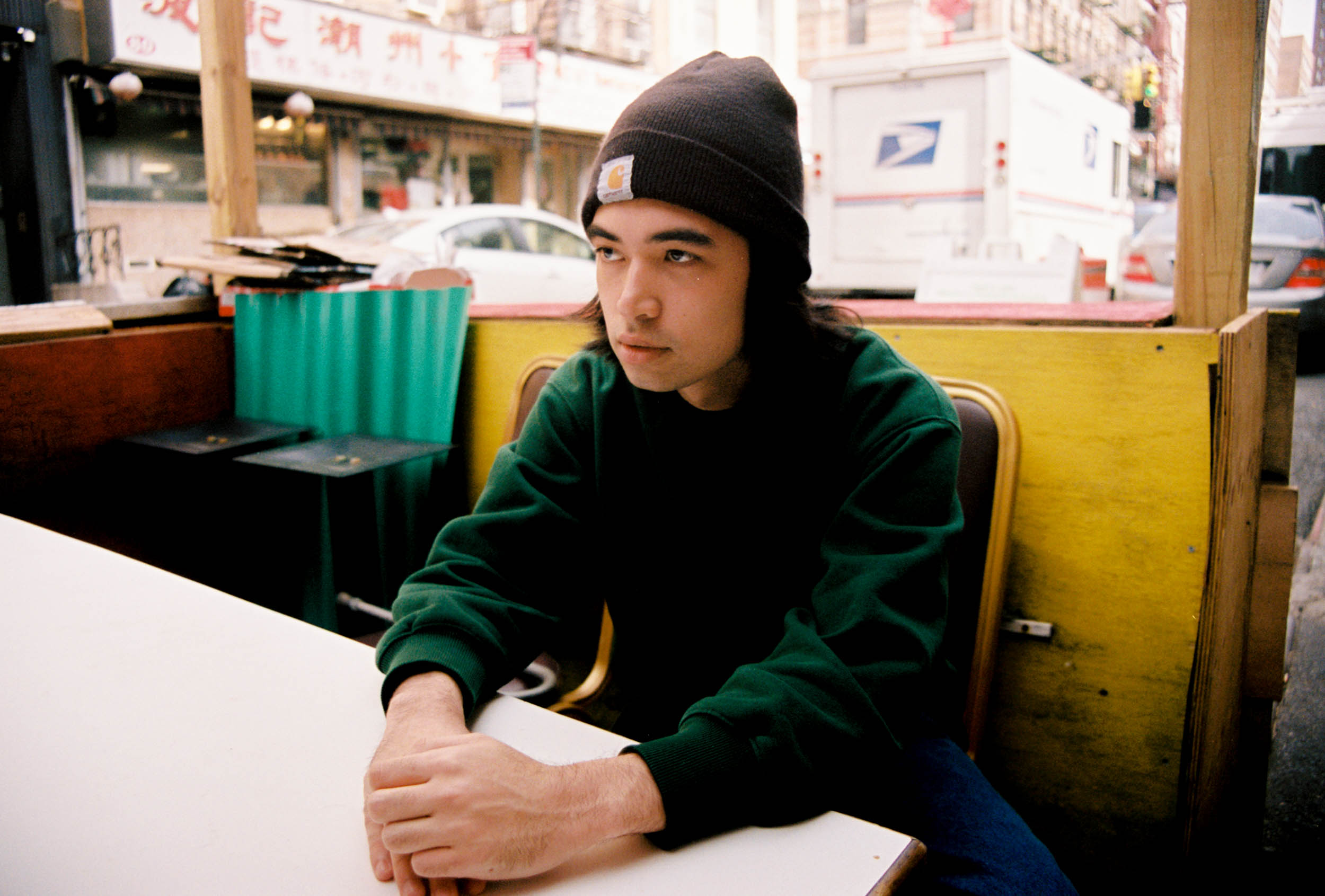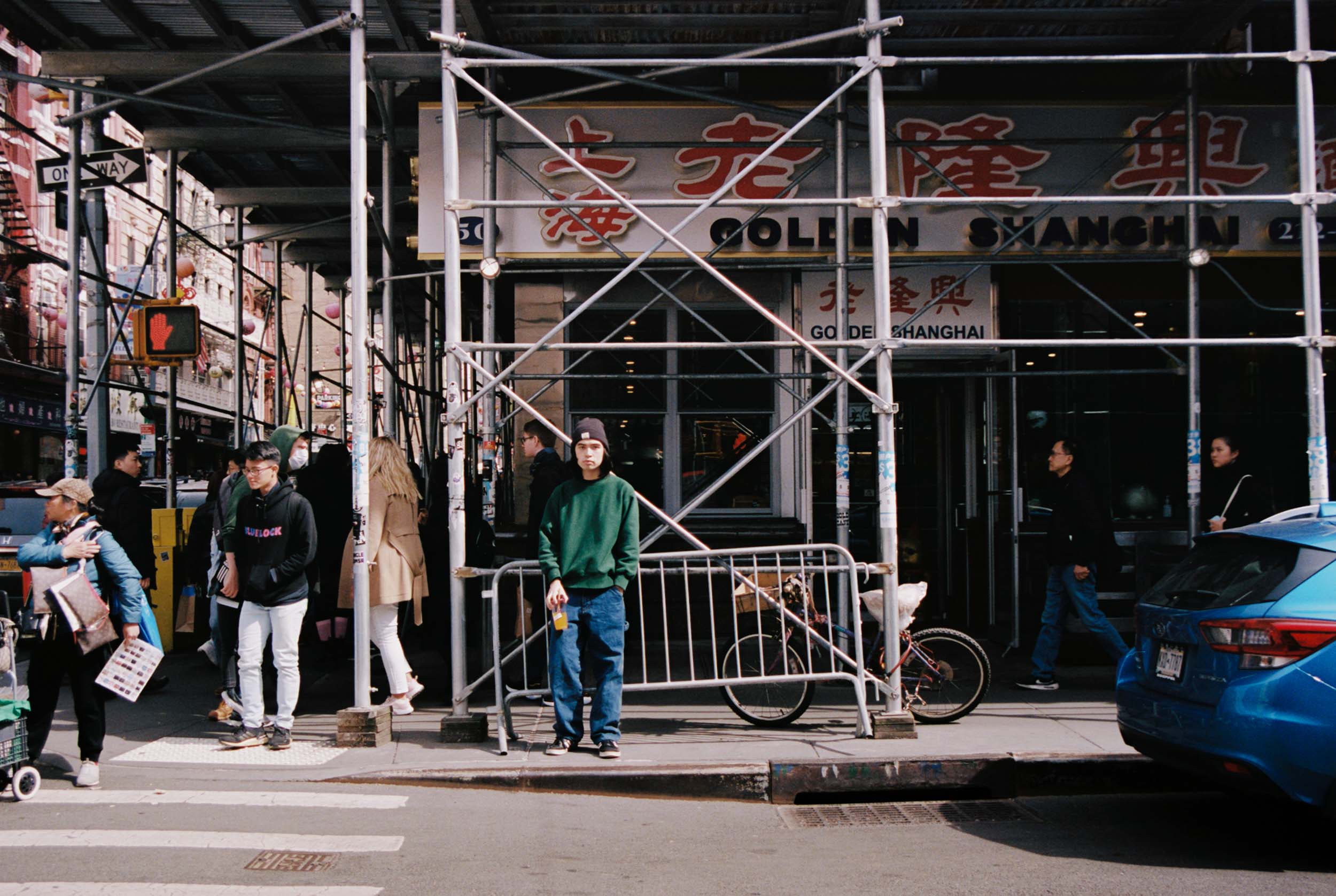In a series of portraits and interviews, photographer Elinor Kry explores the ways in which a lack of fluency in language bolsters distance from ethnicity
Growing up, photographer Elinor Kry felt distance between the person she was and the person she was expected to be. She’s Vietnamese and Cambodian-American, but was raised in a predominately white neighborhood far from extended family, speaking only English. Language, to Kry, seemed to be at the center of that distance she felt: emblematic of the unattainable expectations of ethnicity, rooted in the repercussions that a lack of fluency had on relationships with relatives and communities.
Over the last few months, she sought out people who shared those feelings of being caught in-between. “I wanted to spotlight this complicated relationship that some Asian-Americans have growing up—to explore the idea that assimilation in the more westernized culture can breed a ‘loss’ of ethnic cultural identity,” Kry explains. She captured her subjects in locations that made them feel close to their ethnic cultures, where they discussed the nuance of cultural identity and the complexities of connecting with it.
Tenzing, 20
What was the circumstance under which you didn’t learn Korean growing up?
My mom can speak Korean with a lot of code-switching. She can’t read or write, though. With my extended family, it can be hard to connect. They speak broken English and I can’t speak a word of Korean.
I feel like there are ethnic pressures to have some sort of cultural identity, especially since post-colonial American identity is defined by the migrant, and anybody—regardless of where they’re from—can have American patriotism.
Have you ever tried to learn Korean?
I want to. It does feel foreign despite my being ethnically Korean—like trying to penetrate into something.
Julia, 20
How do you define yourself ethnically?
I was born in South Korea, but I was adopted when I was five months old. I have an older brother, who is also from Korea, and everyone else in my family is very white. My mom’s name is literally Karen and my dad’s is Chris. I feel a little weird saying that I’m Asian-American because I probably don’t have the same experiences that a lot of Asian-Americans with Asian parents have. But I’m still Asian, and American.
What was your experience like with being exposed to Korean culture?
I never had other Asian people to talk to growing up. I remember being excited about having a more diverse student body [at Pratt]. But once I got here, I felt the gap between me and the other Asian-American students. I didn’t have Asian parents and I couldn’t speak the language, and they had Asian parents and could speak the language.
“A lot of people are very proud to be able to represent a certain culture, and the fact that some of us can’t—it’s like we’re a little lower than them.”
Esther, 21
Why did you choose to meet at New World Mall?
I have a lot of memories of following my parents through the aisles here. I would always find some new Asian snack to show my friends or trade for Doritos.
What was the circumstance under which you didn’t become fluent in Chinese?
I took Chinese classes when I was younger and it never stuck. When I started to learn English in Pre-K, I developed a stutter. So, my parents were like, ‘Focus on English for now.’ I wish I took it more seriously. Every time I see my grandparents, I say the bare minimum. They ask, ‘How’s school?’ And I’m like, ‘Good.’ I can’t really talk to them about it.
Ryan, 21
How has not having learned the languages affected you?
I feel Asian-American in my soul, but it gets challenged by peers and people who ridicule me for not knowing as much as I should. A lot of people are very proud to be able to represent a certain culture, and the fact that some of us can’t—it’s like we’re a little lower than them.
Eli, 21
Did your parents ever try to teach you Mandarin?
When I was young, my parents made me go to a Chinese cultural school, but I never learned as much of the language as I was supposed to. I was too young to understand why they were making me do it. My grandparents always wanted me to learn. They were kind of my only connection to my culture. My Mandarin is completely gone now.
Were you ever motivated to learn the language on your own as you grew older?
Once I got old enough to understand how hard my grandparents worked for me to have the life that I have, I felt obligated to at least try to maintain that connection. But I didn’t really have time to dedicate to that. I do feel a little bit guilty. Especially because all of my second cousins became fluent, and you know how Asian culture is with siblings. I guess it was a point of embarrassment [for my parents] that me and my sister did not speak [the language]. But it’s not like I didn’t try—and maybe I will try again.
“I never learned as much of the language as I was supposed to. I was too young to understand why they were making me do it.”
Chloe, 19
Did you ever feel at odds with your Korean culture?
Growing up, I was the only Asian person in my friend group at school. I kind of got used to it. At church, I felt very white because my other friends had a lot of Asian friends. It’s the classic in-between too much and too little.
Have you struggled with that in college at all?
There are so many Asian people at NYU, I felt I’d be doing myself a disservice to not try and build that community. I joined an Asian multicultural sorority. There’s a lot of diversity within the backgrounds of the Asian people that are at NYU: a fair share of international people, and people who are really American. I fall somewhere in the middle of that spectrum, which feels kind of nice.
Wesley, 20
Why did you decide to take a Korean class in college?
My Korean grandmother moved in with my family to help raise me. She has tried so hard to improve her English to better communicate with my siblings and me. Her English is still not great, so she speaks to me in Korean 95 percent of the time. I always understood it, but I could never speak back. I decided to finally learn how to properly speak to her [during] my freshman year of college when an elementary Korean course became available.
What connections did you have with Korean culture growing up?
I lived in white suburbia most of my life. The Korean culture in my childhood was my grandma speaking to me, teaching me Korean euphemisms, showing me pieces of Korean media. When my grandma started a Korean restaurant so growing up, I always had the best Korean food. But going into my house versus going into a person’s house that’s very into Korean culture is totally different. I don’t think I even had another Asian close friend until middle school.
“It’s always like, ‘You’re Filipino hyphen American.’”
Desiree, 19
What was the circumstance under which you didn’t learn Tagalog very well?
Those who are from the Philippines, kind of look down on you [when] you can’t hold a conversation with them. It’s always like, ‘You’re Filipino hyphen American.’ I guess because I didn’t learn it, I never felt Filipino enough. I really did want to learn, but my parents also put emphasis on assimilating, because when they came here, they were labeled and seen as different. For their daughter to fit in with the crowd, was really important for them. They wanted me to learn Tagalog, but it wasn’t their priority at the time.
Audrey, 18
Have you ever felt at odds with not being able to speak Chinese or Vietnamese?
I still feel at odds with not learning Chinese or Vietnamese. That’s been a part of me that’s denied, because I’ve never gotten the opportunity to see what it’s like. When I was back in Texas, I really was trying to deny myself of my Asian heritage. But coming to New York and seeing so many different types of people, I have started to embrace that.
How do you feel that you were denying your heritage?
I always hung out with white people, because the other Asians all spoke Chinese and I didn’t. But now that I’ve started trying to talk to and reach out to more groups of Asian people, like Vietnamese people, it really doesn’t bother me as much anymore.
Om, 19
What is the circumstance you were not raised to learn Hindi?
Because my mom would have been the only one for me to speak with. My dad is ethnically Indian, but he is from London. So I guess she just didn’t think it was worth it to teach it to me, and that I’d only speak it with her at home. I think she wanted me to assimilate more into the culture around us.
During COVID, I started taking Hindi lessons. I realized it’s actually way harder to learn a language at that stage in life than if you’d learned it when you were a child. With COVID and travel restrictions, we felt a disconnect from our family in India. So, that was a way for me to feel closer to [them].
Do you feel you try now to connect more with your culture or with other Indian kids who speak Hindi?
At Fordham, we have a lot of international students from India. And although we do share some aspects of Indian identity, I feel like an outsider because I don’t speak the language. Sometimes they’re all chatting, and I’m just there on the side. But that opens another window with other Indian-American students. Especially living in New York, I see so many different cultures that I’m more excited to share parts of my culture that I’ve suppressed in the past.
“Whenever I hear anyone else speak Taiwanese, I get a nostalgic, comforting feeling—it reminds me of my mom. I wish I could speak it.”
Laura, 20
What languages did you speak at home?
Both my parents are Taiwanese. My mom is Taipei-born and my dad identifies as Taiwanese. I can’t really say where he’s from because we’re a very Taiwanese household. We grew up going to Chinese school to learn Mandarin and then stopped in middle school. It was my first language until public school where English replaced Mandarin, and my mom would get really upset and want me to only speak Mandarin with her. I also understand a little bit of Taiwanese but I can’t speak it.
Why do you not speak Taiwanese?
Taiwanese is a dying language, mostly only the natives and older generations really know it, so there’s less of a chance of me learning it. My mom speaks it which is why I can understand it, but not speak it. Whenever I hear anyone else speak Taiwanese, I get a nostalgic, comforting feeling—it reminds me of my mom. I wish I could speak it.
Chris, 20
How do you define yourself ethnically?
Filipino-Nigerian, but I don’t speak the native tongue. It’s easier to say I’m just Black. I feel like I present more as a Black person than as a mixed-race, Asian person. I didn’t really relate to any of the customs or the language.
What languages did you speak at home?
I just spoke English. When my parents moved to America, they really focused on teaching us English. And we didn’t have any family that are Nigerian or Filipino in the States. And they were too busy with work to spend time teaching us a native language like Tagalog.
How has not being able to speak the language affected your life?
My grandma doesn’t like talking to us because we don’t speak the same language. It’s always awkward. Even here, when I worked on the Upper East Side, there’s like a big Filipino community. They get so excited because I’m like, ‘I’m Filipino too.’ They want to talk in Tagalog, and I can’t. There’s always a look of disappointment.
“I know by coming to America, my mom and dad had to kill parts of themselves to survive. Because of that, I will never feel fully Vietnamese.”
Ethan, 22
Why did you want to meet at the pier?
My dad crossed a large body of water to get here. I can imagine that was terrifying, but despite that, growing up, he took us to the water a lot. Some of my fondest memories growing up take place by the water. I think in my dad’s youth, he innately had a fear of water, but he taught us an appreciation of it. Ocean Vuong wrote about ‘learning to love a monster.’ I think that describes it pretty well.
Do you wish you were more connected with Chinese and Vietnamese cultures growing up?
I’m so different from Chinese people culturally. I tell people that I’m Viet first and foremost. Usually, Chinese is an afterthought. It’s become more apparent since moving to New York that I’m Chinese. My parents did their best to raise me as a Vietnamese person despite being removed from their culture. But I know by coming to America, my mom and dad had to kill parts of themselves to survive. Because of that, I will never feel fully Vietnamese.
Crystal, 18
What languages did you speak at home?
My parents are from two different countries. My mom’s first language is Tagalog and my dad’s is Burmese, but they are both ethnically Chinese. They spoke English to each other because they both suck at Mandarin, so I spoke English.
Can you talk about connections that you have with Chinese, Filipino, or Burmese culture?
I was immersed around my mom’s friends who were also Filipino, but she would always be like, ‘Remember, you’re Chinese—don’t get it twisted.’ [When I was older], I hung out more with my dad, who’s Burmese. Burmese and Filipino cultures are prevalent in my life, but my Chinese heritage has always been the staple.
Elise, 20
Did you ever feel disconnected from others because you didn’t know the language?
Honestly, that came later. When I was younger, I was living in a really predominantly white community. I wanted to be white really bad. I tried to not be Taiwanese or Chinese as much as possible. But when I was in high school spending summers in Taipei, it was obvious that I was not good at Chinese. They would respond in English or speak really slow Chinese—which is so humbling. I felt so bad that I couldn’t speak my own language.
























































